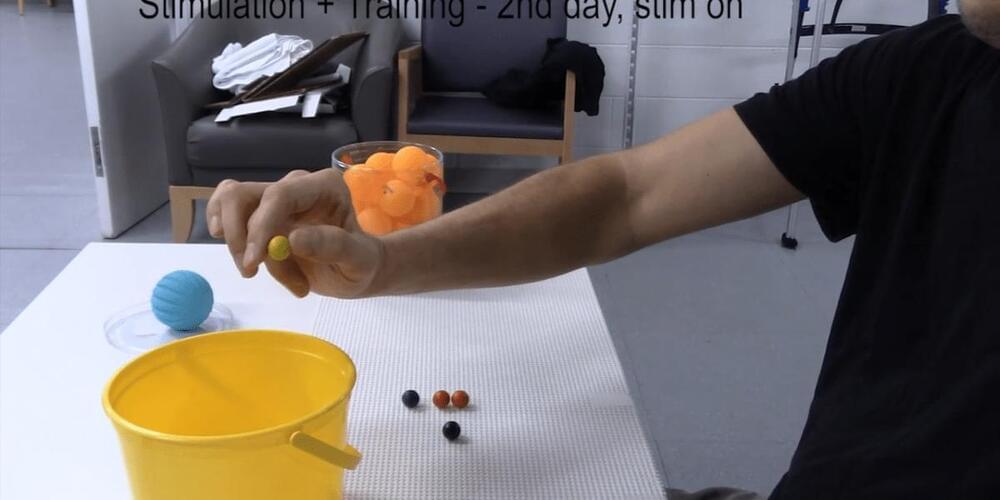“Everyone thinks that [after] spinal injury, all you want to do is be able to walk again. But if you’re a tetraplegic or a quadriplegic, what matters most is working hands,” she said.
Reid received the device, called ARCex, as part of a 60-person clinical trial. She and the other participants completed two months of physical therapy, followed by two months of physical therapy combined with stimulation. The results, published today in Nature Medicine, show that the vast majority of participants benefited. By the end of the four-month trial, 72% experienced some improvement in both strength and function of their hands or arms when the stimulator was turned off. Ninety percent had improvement in at least one of those measures. And 87% reported an improvement in their quality of life.
This isn’t the first study to test whether noninvasive stimulation of the spine can help people who are paralyzed regain function in their upper body, but it’s important because a trial has never been done before in this number of rehabilitation centers or in this number of subjects, says Igor Lavrov, a neuroscientist at the Mayo Clinic in Minnesota, who was not involved in the study. He points out, however, that the therapy seems to work best in people who have some ability to move below the site of their injury.
